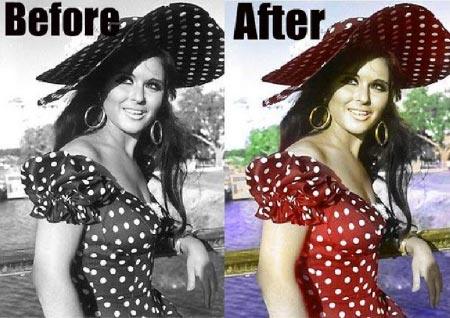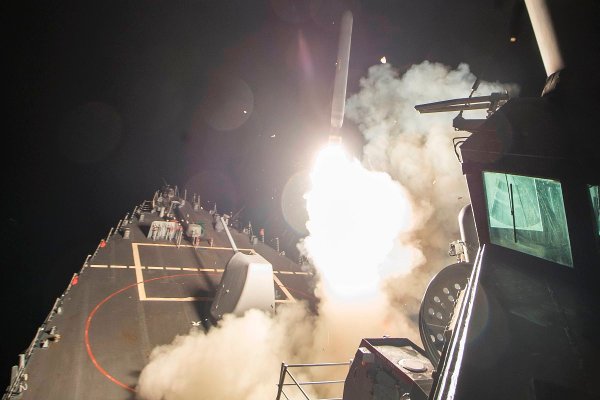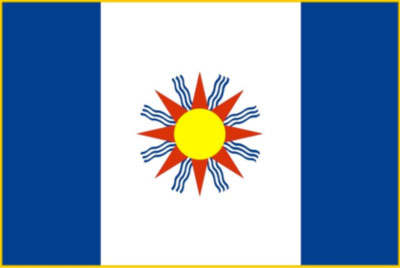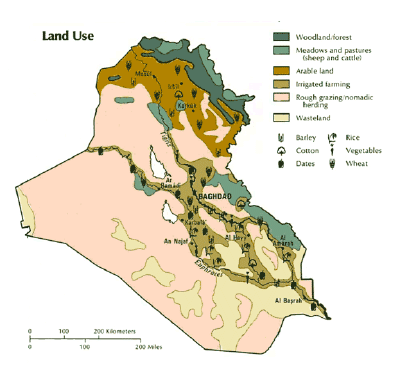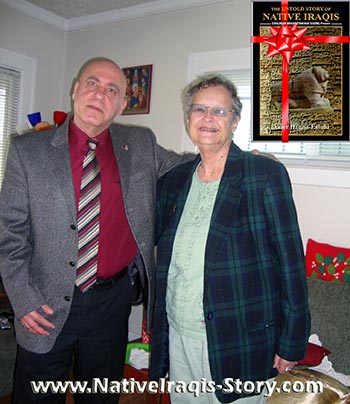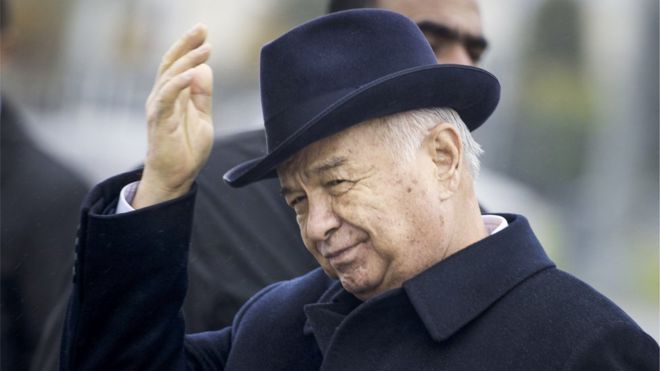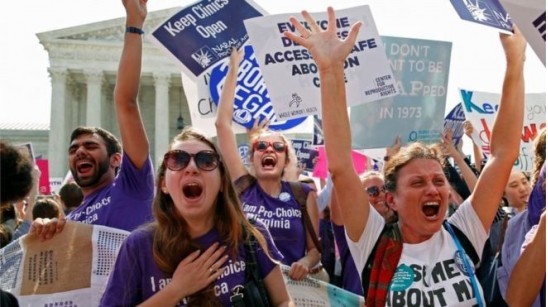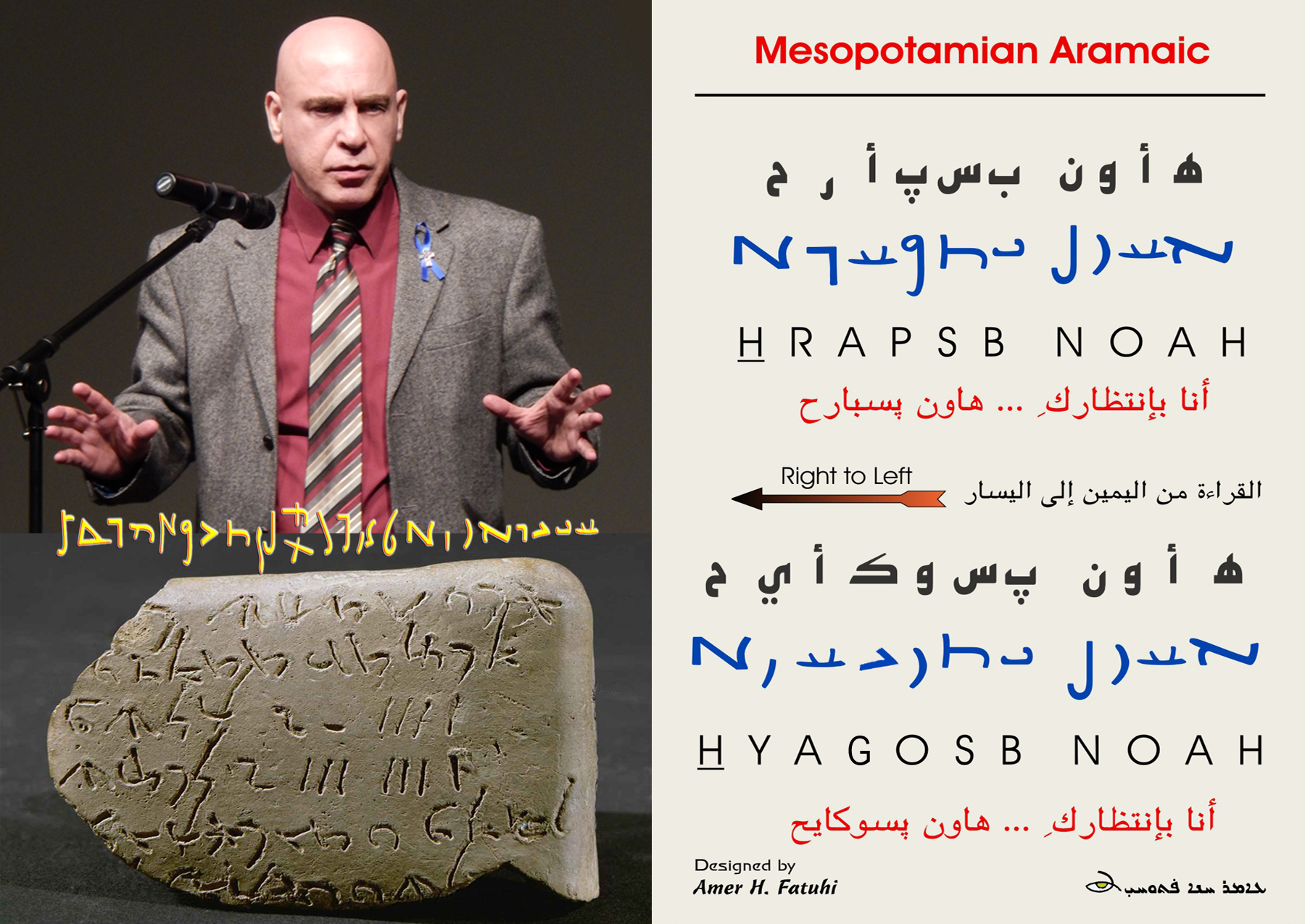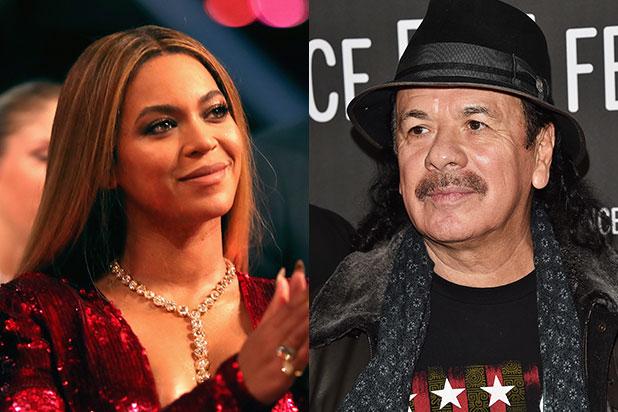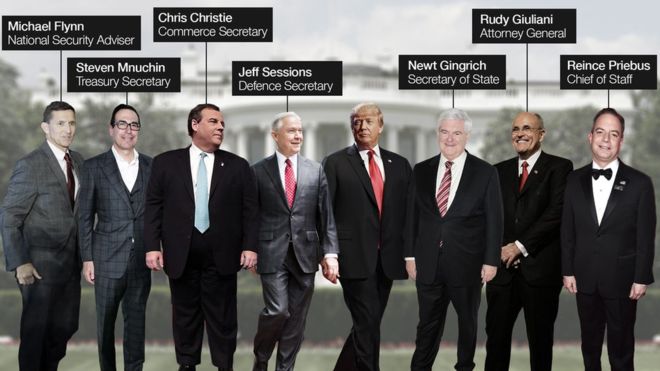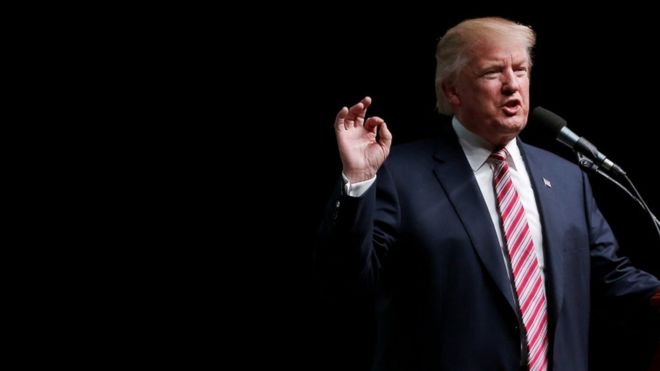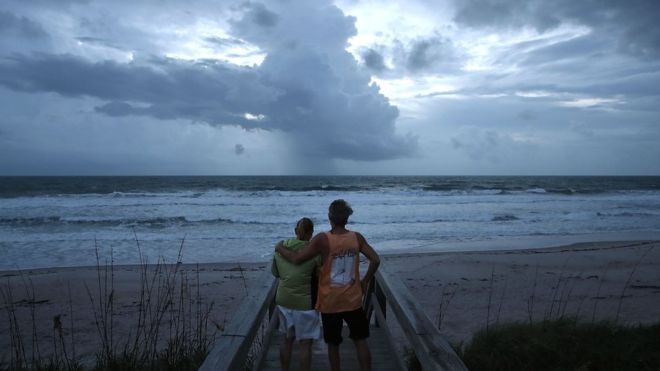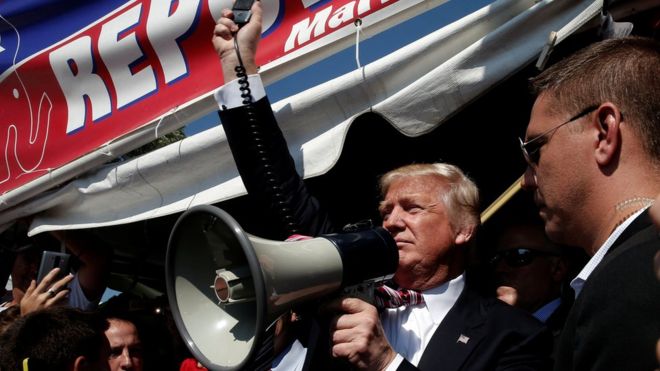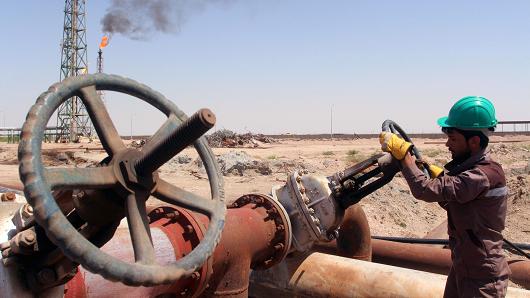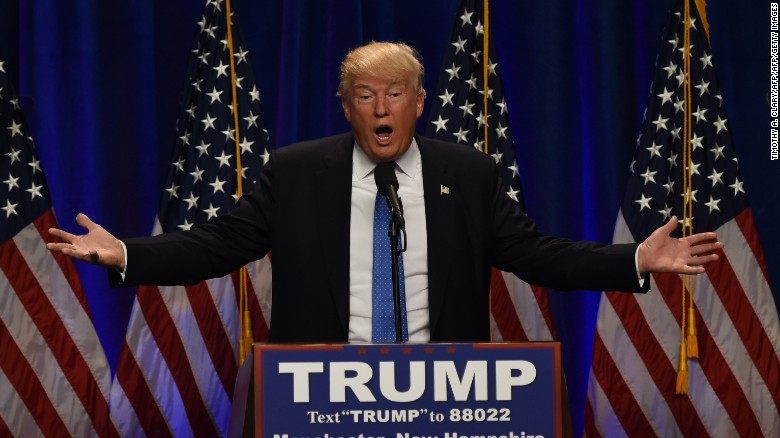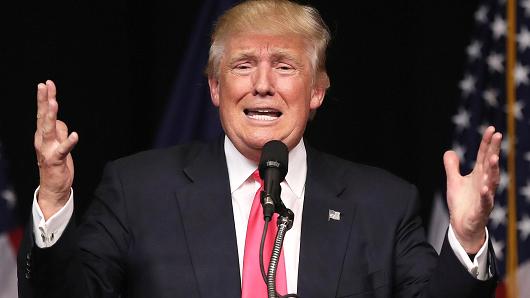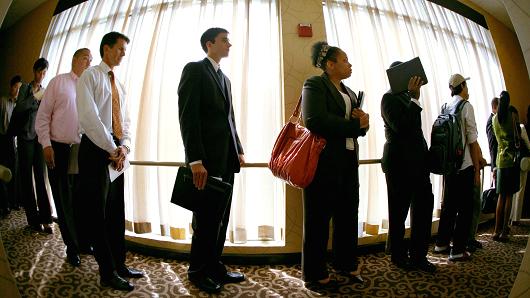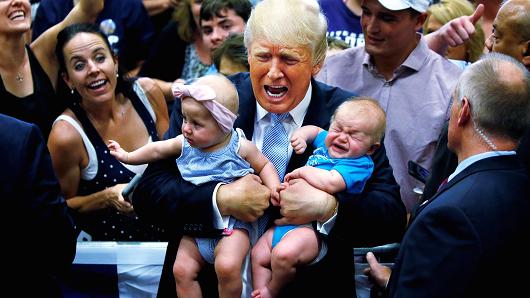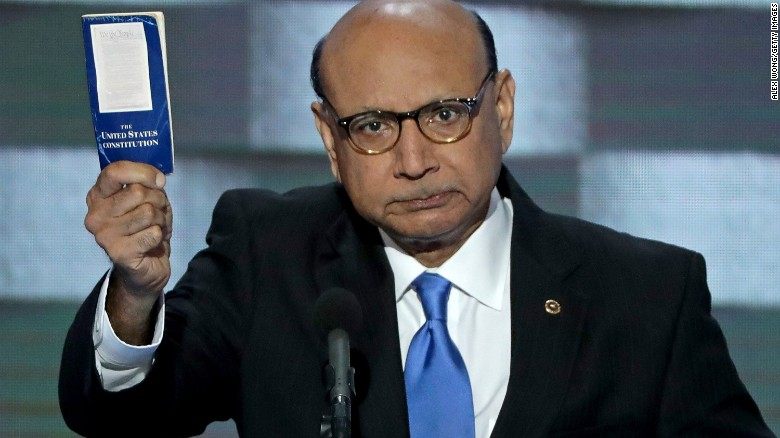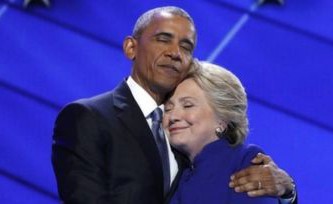The US Supreme Court has struck down a 2013 Texas abortion law that imposed restrictive regulations on the procedure.
The law requires doctors who perform abortions to have admitting privileges at nearby hospitals and clinics to maintain hospital-like conditions.
Republicans contended the law protects women while advocates argued the measures restricts access to abortions.
The key decision is the first major abortion ruling since 2007.
Justice Anthony Kennedy sided with the court's liberals in the 5-3 decision, which marked the first time the High Court has limited state abortion legislation in more than 15 years.
At the scene - Ashley Gold, BBC News, outside court
Nearly a thousand people gathered in front of the Supreme Court in the hot sun, holding signs and dancing to a Beyonce-heavy playlist.
At times, the pro-choice crowd's loud music and shouting drowned out chants of "we are the pro-life generation" from the other side.
But when the Court handed down its decision invalidating Texas' abortion laws, those who say they fight for life took to the microphones outside the court to say they would not give up.
"Women were hurt today," one said. "There are two victims to abortion, and my heart is breaking."
A few feet away, women holding "keep abortion legal" and "The burden is undue" signs danced, screamed and sang in reaction to the court's decision, many of them in disbelief - several had feared a tie.
The last time the top court issued a ruling on a major abortion case was nine years ago in a 5-4 decision to uphold a federal law banning a late-term abortion procedure.
The Supreme Court legalised abortion nationwide in its landmark 1973 Roe v Wade ruling.
The typically nine-justice court was one member short after the death of Justin Antonin Scalia earlier this year.
Chief Justice John Roberts, Justice Clarence Thomas and Justice Samuel Alito dissented.
In many parts of America, women have to travel for hours to get an abortion, because access to services is limited. Texas is one of those states.
This decision strikes down laws which activists say were punitive and had no medical value. The majority opinion on the US Supreme Court may have agreed with that position, but this ruling alone can't change the deep divisions in America over the issue.
More than four decades on from when the US Supreme court legalised abortion, many state legislatures continue to tighten access to it in other ways, such as reducing the time limits on when women can have one.
Politicians in the state of Oklahoma recently voted to ban abortion but were later overturned by the state's governor. The strength of feeling there is mirrored across a number of southern states.
In an election year, abortion is likely to be a key issue for debate - Hillary Clinton is a firm supporter of a woman's choice, while Donald Trump said he'd support measures which would criminalise doctors who carried out abortions.
"By striking down politically motivated restrictions that made it nearly impossible for Texans to exercise their full reproductive rights, the court upheld every woman's right to safe, legal abortion, no matter where she lives," Democratic presumptive nominee Hillary Clinton said in a statement after the ruling.
But Russell Moore, president of the Ethics & Religious Liberty Commission of the Southern Baptist Convention, said the decision came "at the expense of children, women, and families".
"Keeping abortion providers accountable should not be a political wedge issue. This ruling is further proof how much more work the pro-life movement has to do in the cause of life and human dignity." he said.
>BBC















